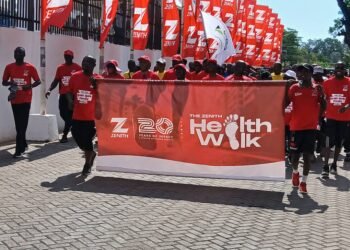Professional services firm PwC, has reaffirmed its commitment to advancing gender equity with the launch of its gender diversity banking report,
The thought leadership report titled “Changing Currency: Examining Trends and Challenges of Female Participation in Ghana’s Banking Sector,” was launched during a high-profile breakfast forum held at Kempinski Gold Coast in Accra.
This comprehensive report, which is a culmination of responses from a survey conducted over a four-month period, delves into the experiences and insights of women in Ghana’s banking sector.
The survey focuses on females in senior management positions, as well as female board members. Through interviews conducted across thirteen banks in Ghana, PwC sought to identify the myriad issues hindering women’s career advancement as well as analyse the factors that propel them in the industry.
“Conducting a study on female participation in Ghana’s banking sector was essential,” Vish Ashiagbor, Country Senior Partner, remarked.
“By gaining a deeper understanding of the challenges and opportunities women face in the financial services industry, we enhance our ability to provide tailored solutions that drive positive change.”
Vish Ashiagbor
The launch event attracted a distinguished audience of senior executives from across Ghana’s banking sector. It featured insightful panel discussions with esteemed industry leaders, including Dr Cynthia Forson, board member at CalBank; John Awuah, CEO and president of the Ghana Association of Bankers, and Pearl Nkrumah, executive director at Access Bank.
The report highlights the pivotal role women play in advancing Ghana’s banking sector and sheds light on the avenues they must go through to be fully engaged stakeholders in the industry,” Clara Amarteifio-Taylor Partner and Inclusion & Diversity Leader, stated, adding that “It is my hope that through the report, more women feel empowered to push themselves to excel within the sector.”
Advancing Gender Diversity and Inclusion
PwC’s “Changing Currency” report marks a significant milestone in advancing gender diversity and inclusion within Ghana’s banking sector. As the industry continues to evolve, PwC remains committed to its strategy to promote inclusion and diversity within and beyond the firm.
According to the report, while strides have been made in recent years towards gender inclusivity, there is a pressing need to redefine this narrative, fostering an industry where diversity thrives, and opportunities are accessible to all.
Over the decades, the global banking landscape has been a domain where women have hesitated to venture, often deterred by the responsibilities and pressures associated with breaking into what often feels like an exclusive boys’ club.
The once daunting landscape is now witnessing surge of interest and determination from women seeking to contribute their skills and expertise. As societal attitudes slowly evolve and organisations actively promote diversity and inclusion, women are starting to end avenues into the banking sector. The industry is undergoing a transformation, opening doors for talented women to thrive in various roles.
The changing perception Is largely driven by a growing awareness of the importance of diverse perspectives in driving innovation and success. Women are drawn to the dynamic opportunities the banking sector presents, from leadership positions to specialised roles in treasury, risk management, and human resources.
Gender parity in the banking sector has garnered significant attention and is continually evolving, making it a ripe subject for examination and analysis.
The report was created with the aim of comprehending the pivotal role that women occupy within Ghana’s banking sector, as well as the various factors that either hinder or propel their advancement.
To achieve this aim, a comprehensive approach was adopted, involving in-depth interviews with male and female executives across 13 banks. This process spanned a duration of four months, ensuring that their perspectives were thoroughly explored, and emerging trends identified.























